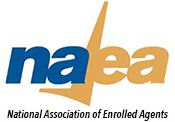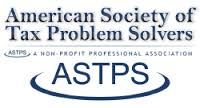Welcome to the TaxGenuity Blog
How to Deduct Business Travel
Before traveling for business, it’s important to know what’s tax deductible. Through 2025, employees aren’t permitted to deduct unreimbursed business expenses, including travel expenses, but self-employed people may deduct business travel expenses on Schedule C....
How to Keep Control Over Inventory
Many businesses need to have some inventory available. But having too much inventory is expensive, not just to purchase but also to store, safeguard and insure. So, keeping your inventory as lean as possible is critical. Here are some ways to trim the fat from your...
A Tax Break for Educators
Teachers who are getting ready for a new school year often pay for some of their classroom supplies out-of-pocket. They may be able to get some of that cost back by taking advantage of a special tax break for educators. History of the Deduction Before 2018, employees...
Tax Considerations When Choosing a Business Entity
Are you in the process of starting a business or contemplating changing your business entity? If so, you’ll need to decide how to organize your company. Should you operate as a C corporation or as a pass-through entity such as a partnership, limited liability company...
Valuable Tax Credit Available for Energy-Efficient Homes
Under the Inflation Reduction Act, construction contractors who build or rehab energy-efficient homes may be eligible for a federal tax credit of up to $5,000 per project. To claim the credit, builders are required to construct or substantially rehab a qualified home...
Handle Your 401(k) Rollover With Care
Leaving a job? You may want to roll over funds in your former employer’s 401(k) plan to an IRA. But there’s a tax trap for the unwary. If you receive a 401(k) plan check that’s payable to you personally or if you have a distribution put into a personal account...
Retirement Saving Options for Your Small Business
If you’re looking for a retirement plan for yourself and your employees but worried about the financial commitment and administrative burdens involved, there are some options to consider. One possibility is a Simplified Employee Pension (SEP). This plan, which comes...
HSAs Can Be Powerful Retirement Saving Tools
Health Savings Accounts (HSAs) are tax-advantaged savings vehicles for funding health care expenses not covered by insurance. And for those in relatively good health, they also may serve as attractive retirement savings vehicles. To be eligible to contribute, an...
Boost Your Home Improvements with Tax Credits
For many homeowners, summer means it’s time to tackle home improvement projects. By investing in certain energy-efficient updates, taxpayers not only can lower their power bills but also can score some tax breaks. The Energy Efficient Home Improvement Credit equals...
Renting to Family Members
As rents continue to rise in many areas, you may decide to help your financially challenged family members by renting a property to them at a discount. But this can lead to the loss of significant tax deductions. Here's a look at the tax treatment that applies when...












